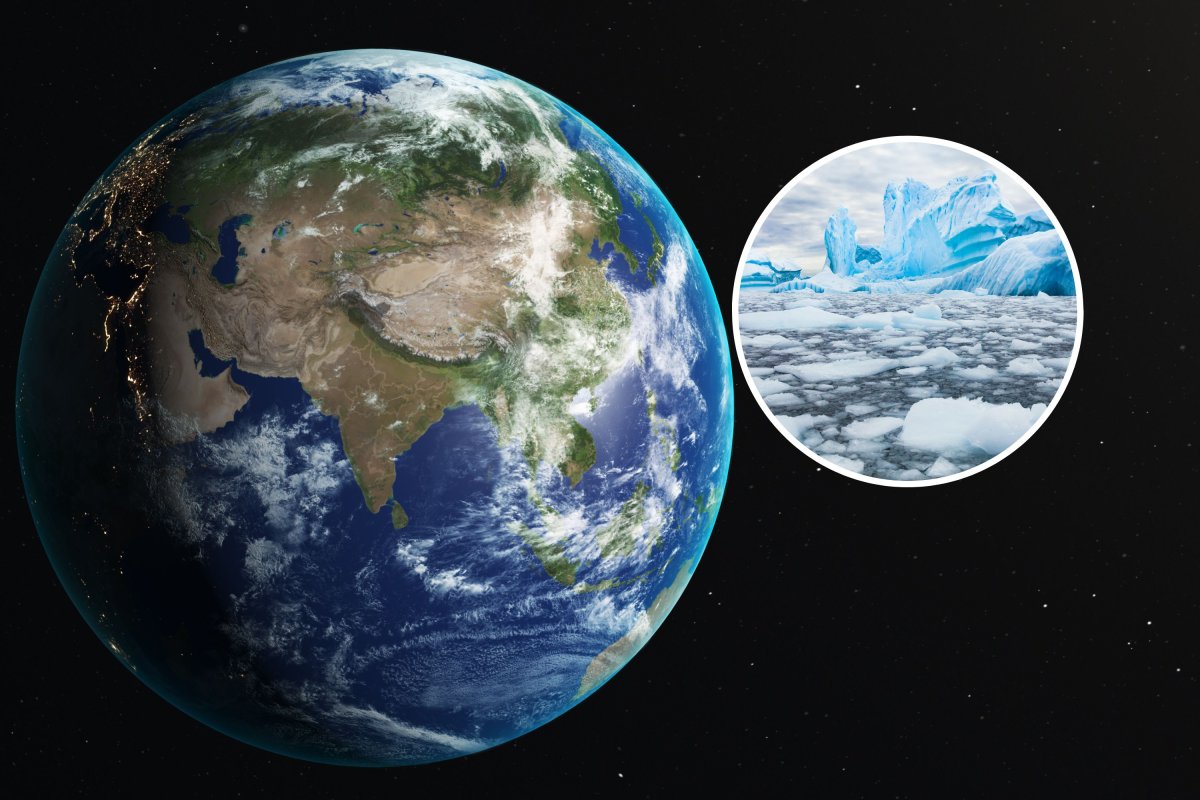Melting ice at the poles due to climate change may impact the Earth's spin, altering our global clock.
According to a new paper in the journal Nature, the "leap second" due to be added to Coordinated Universal Time (UTC) in 2026 may now be delayed until 2029, thanks to melting polar caps.
This may impact computer networks around the globe and could be a portent of what is to come with continued climate change and sea ice melting.
Network computing and financial markets, among many other activities, require a standardized global clock, which UTC provides. However, as the Earth's rotation sometimes varies, UTC is adjusted slightly when required to maintain a consistent time frame with the Earth's rotation relative to the stars.

Factors deep within the Earth impact its angular velocity, notably the liquid outer core. The angular velocity of this liquid core has been constantly decreasing, resulting in an increase in the angular velocity of the solid Earth, meaning that it is spinning slightly quicker.
To correct for this increase in angular velocity, a few leap seconds have been added to the global clock over the past few decades, and a negative leap second was due to be added in 2026.
Now, however, the impacts of melting sea ice at the poles have meant that this system of timekeeping is being thrown off.
Antarctica is melting at an average rate of about 150 billion tons of ice per year, while Greenland's ice caps are losing about 270 billion tons per year. This ice melt at the poles has raised sea levels around the world, transferring mass away from the poles. This may have decreased the angular velocity of the planet, and therefore the negative leap second will be needed later, in 2029.
"Extrapolating the trends for the core and other relevant phenomena to predict future Earth orientation shows that UTC as now defined will require a negative discontinuity by 2029," researcher Duncan Agnew of the University of California San Diego wrote in the paper.
"This will pose an unprecedented problem for computer network timing and may require changes in UTC to be made earlier than is planned. If polar ice melting had not recently accelerated, this problem would occur 3 years earlier: global warming is already affecting global timekeeping."
According to the paper, future global warming may drive further issues with global timekeeping in the future as climate change proceeds.
Do you have a tip on a science story that Newsweek should be covering? Do you have a question about leap seconds? Let us know via science@newsweek.com.
Uncommon Knowledge
Newsweek is committed to challenging conventional wisdom and finding connections in the search for common ground.
Newsweek is committed to challenging conventional wisdom and finding connections in the search for common ground.
About the writer
Jess Thomson is a Newsweek Science Reporter based in London UK. Her focus is reporting on science, technology and healthcare. ... Read more
To read how Newsweek uses AI as a newsroom tool, Click here.








